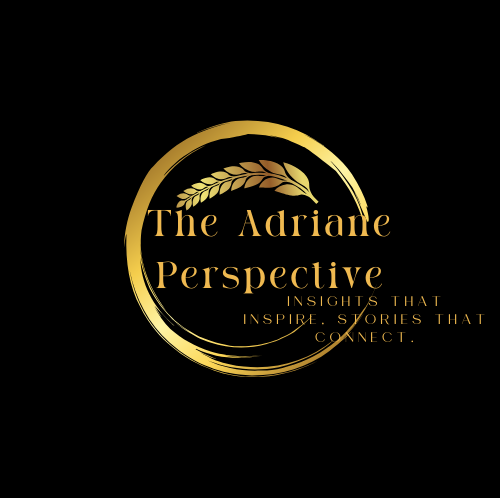2024 Set to Be Record-Breaking Hottest Year, EU Scientists Forecast
As we navigate the complexities of modern life, climate change remains an ever-present challenge that affects us all. According to recent forecasts by European Union scientists, 2024 is on track to become the hottest year on record. This alarming prediction not only underscores the urgency of addressing global warming but also highlights the disproportionate impact it has on black women in America. Let’s delve into what this means for us and how we can take proactive steps to mitigate its effects.
The Alarming Forecast: What the Data Says
EU scientists have conducted extensive research indicating that 2024 could surpass all previous temperature records. This projection is based on current trends in greenhouse gas emissions, deforestation, and global industrial activities. The rise in global temperatures is not just a number; it translates to tangible consequences that affect our daily lives, especially within black communities.
Key Factors Contributing to the Heat Surge
Several interrelated factors are driving this unprecedented rise in temperatures:
- Greenhouse Gas Emissions: Continued reliance on fossil fuels significantly contributes to the greenhouse effect, trapping heat in the earth’s atmosphere.
- Deforestation: The reduction of forests, which act as carbon sinks, exacerbates the accumulation of carbon dioxide.
- Urbanization: Increasing urban areas absorb and retain heat, leading to higher local temperatures.
- Agricultural Practices: Intensive farming techniques release methane and other potent greenhouse gases.
Understanding these factors is crucial for developing strategies to combat climate change and protect our communities.
Impact on Black Women in America
The impending heatwave of 2024 holds significant implications for black women in America. Historically, black communities have been marginalized in environmental policies, leading to greater vulnerability to climate-related disasters.
Health Impacts
Extreme heat can lead to severe health issues, including:
- Heatstroke: Prolonged exposure to high temperatures can cause heatstroke, a potentially fatal condition.
- Respiratory Problems: Increased heat often correlates with poor air quality, exacerbating conditions like asthma.
- Mental Health Strain: The stress of dealing with extreme weather events can take a toll on mental well-being.
Economic and Social Disparities
Black women often face economic challenges that make it harder to cope with extreme weather:
- Access to Resources: Limited access to cooling centers and medical facilities increases vulnerability during heatwaves.
- Employment: Jobs that cannot be performed remotely or in controlled environments expose workers to higher risks.
- Housing Conditions: Substandard housing without adequate insulation or air conditioning exacerbates the effects of heat.
Taking Action: Empowering Our Community
While the forecast for 2024 is daunting, there are proactive steps we can take to safeguard our communities and advocate for meaningful change.
Advocacy and Policy Change
Advocating for robust environmental policies is essential. This includes:
- Supporting Green Legislation: Back policies that promote renewable energy and reduce carbon emissions.
- Community Organizing: Mobilize local communities to demand better environmental protections and resources.
- Representation: Ensure black women have a seat at the table in environmental decision-making processes.
Personal and Community Resilience
Building resilience within our communities can help mitigate the impacts of extreme heat:
- Creating Cooling Centers: Establish accessible cooling centers in neighborhoods that lack adequate infrastructure.
- Public Health Initiatives: Increase awareness about the signs of heat-related illnesses and provide resources for prevention.
- Green Spaces: Advocate for the creation and maintenance of urban green spaces to help regulate local temperatures.
Embracing Sustainable Practices
Adopting sustainable practices in our daily lives contributes to the broader fight against climate change:
- Energy Efficiency: Use energy-efficient appliances and reduce overall energy consumption.
- Transportation: Opt for public transportation, biking, or walking to decrease carbon footprints.
- Waste Reduction: Implement recycling and composting practices to minimize waste.
Inspiring Change Through Community and Culture
Our strength lies in our communities and the rich cultural heritage we share. By coming together, we can foster a collective movement towards a sustainable future.
Community Education and Empowerment
Educating ourselves and others about the realities of climate change empowers us to take informed action:
- Workshops and Seminars: Host events focused on climate education and sustainable living.
- Youth Engagement: Encourage young people to participate in environmental initiatives and leadership roles.
- Resource Sharing: Create platforms for sharing resources and information on sustainability practices.
Celebrating Black Excellence in Sustainability
Highlighting the achievements of black women in the field of sustainability can inspire future generations:
- Spotlighting Leaders: Feature stories of black women making strides in environmental science and activism.
- Mentorship Programs: Establish mentorship opportunities to support aspiring environmentalists.
- Collaborative Projects: Partner with organizations that focus on environmental justice and equity.
A Call to Action
As we brace for a potentially record-breaking hot year in 2024, it is imperative that we **unite** and **take decisive action**. The challenges posed by climate change are significant, but with resilience, advocacy, and community strength, we can create a sustainable and equitable future for ourselves and the generations to come.
Let’s commit to:
- Reducing our carbon footprint through sustainable practices.
- Advocating for policies that protect our environment and communities.
- Supporting each other in building resilient and empowered communities.
Together, we can turn the tide against climate change and ensure that our voices are heard and our actions matter.
